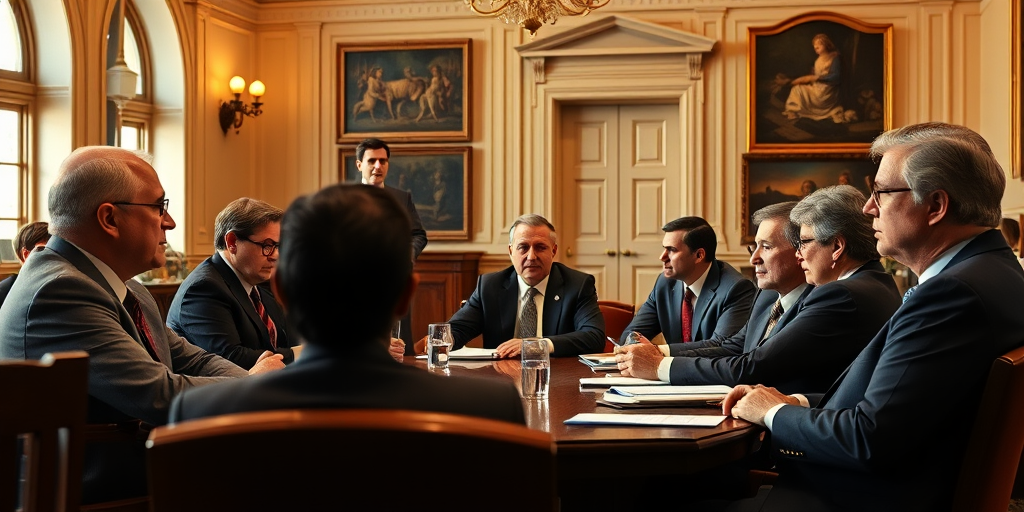UVA Board of Visitors Shifts Focus in Diversity Efforts
The University of Virginia’s Board of Visitors has decided to realign its diversity efforts, emphasizing “free inquiry and viewpoint diversity” instead of traditional demographic metrics. This pivot comes in response to an April inquiry by the Justice Department, which accused UVA of failing to dismantle its diversity, equity, and inclusion (DEI) programs. At a meeting on June 6, 2025, board members discussed new strategies to ensure a balance of opinions in academic settings and eliminate discrimination in hiring based on political views.
Context and Background
University of Virginia (UVA) has been at the center of the nationwide debate on diversity policies in higher education. In the wake of the Justice Department’s charges, UVA’s Board intends to adjust its diversity programs. This marks a significant directional change from the 2020 promise focused on racial equity.
Board member Douglas Wetmore articulated the shift in approach during the meeting by highlighting the necessity for equilibrium in academic programming. “I think there’s a view amongst some that we don’t have balance in the academic programming, faculty; there’s not a purposeful effort to try and balance the faculty,” Wetmore conveyed.
The board’s strategy involves guiding faculty search committees to avoid bias in hiring based on political affiliations, thereby broadening applicant pools and fostering an environment where diverse viewpoints can thrive.
Local Impact and Community Response
For Charlottesville and the broader Albemarle County, these changes are more than administrative. They point to UVA’s role as a key influencer in the community’s cultural and socioeconomic landscape. By focusing on intellectual diversity, the board aspires to enrich the educational experience, potentially positioning UVA as a national leader in fostering an inclusive environment for free thought and debate.
However, the pivot has not been without questions. Critics fear the move might dilute efforts to address racial and gender disparities. Students and faculty have expressed concerns about whether this reorientation will genuinely promote inclusivity or sidetrack from tangible demographic equity progress.
Charlottesville resident and UVA alumnus Lena Rodriguez believes this could lead to a more robust academic environment but urges caution. “Inclusion is vital, but so is representation. We can’t forget the importance of having diverse faces in the room as well as diverse ideas,” she said.
Connections to Local Events and Broader Issues
This policy shift unfolds against the backdrop of a series of impactful events in the area. Recently, tragedy struck when the body of a 12-year-old flood victim was found in Albemarle County. Furthermore, the county has grappled with increased gun violence and a Virginia State Police trooper being charged with threatening a local woman.
While these incidents might seem unrelated to UVA’s policy adjustments, they highlight the region’s pressing need for dialogues around safety, representation, and justice. Each event underscores the complexity of ensuring a community that values both safety and inclusivity.
Possible Future Implications
The board’s decision could lead to increased scrutiny from various stakeholders, including students, faculty, parents, and federal entities. Local observers question whether this shift will attract students from more politically diverse and underrepresented backgrounds or alienate those who feel racial and demographic diversity may be sidelined.
Looking forward, this realignment may serve as a catalyst for other institutions reconsidering traditional diversity frameworks. It represents a significant local impact in higher education policy, pushing conversations about balance in representation, be it ideological or demographic.
Balanced Reporting
Both supporters and detractors of this policy shift are cautious yet hopeful. Advocates see an opportunity for UVA to break new ground by creating a more ideologically inclusive space. They argue that diversifying viewpoints is as essential as diversifying the student body and faculty.
Conversely, some community members are worried that these changes may overlook systemic inequalities that demographic diversity initiatives seek to address. The concern is that by stepping back from demographic commitments, UVA may inadvertently discount critical socioeconomic factors.
Resources and Contact Information
To keep residents informed and engaged, the Board of Visitors plans to facilitate open forums where students and community members can express their concerns and suggestions. Information about these sessions will be available through UVA’s public relations channels.
As the University of Virginia redefines its diversity parameters, a nuanced and ongoing dialogue with the community will be essential to ensuring the university’s actions align with ethical and equitable practices. Residents and stakeholders have the opportunity to participate in shaping what diversity at UVA will mean for the future, not just in theory, but in lived community impact.
For more information, residents can contact the UVA Board of Visitors via email at bvcontact@virginia.edu or visit their website for the latest updates on upcoming forums and policy meetings.
By aligning these strategies, UVA has placed itself at the heart of a critical examination of how diversity efforts are perceived and implemented, maintaining its relevance and responsibility in the broader socio-academic fabric of the United States.







